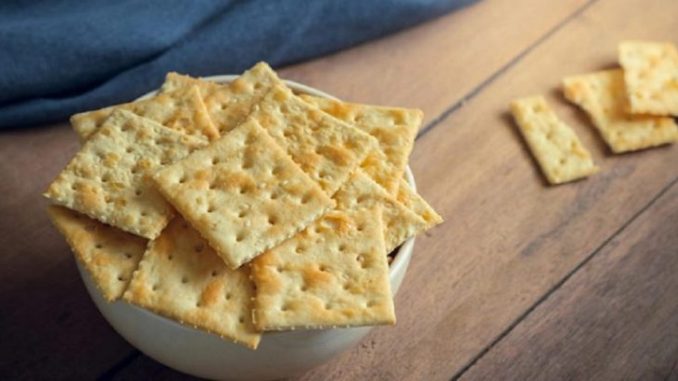
Saltine crackers have been a staple in pantries for decades, often enjoyed with soup, cheese, or a simple snack. But are saltine crackers healthy? This is a fair concern, considering their popularity and the ease with which they can be consumed in large quantities. Understanding their nutritional profile and potential health effects can help you make more informed decisions.
Nutritional Breakdown of Saltine Crackers
Saltine crackers are made primarily from refined white flour, water, salt, and a leavening agent. They are low in calories and fat but also offer minimal nutritional value. A typical serving of five saltine crackers (about 15 grams) provides approximately 63 calories, 11.2 grams of carbohydrates, and only 1.4 grams of protein. They also contain a modest amount of sodium, around 140 milligrams per serving.
Despite their popularity, saltine crackers lack fiber, vitamins, and minerals, making them a poor source of essential nutrients. This is why they are often categorized as processed foods. Their refined carbohydrate content and high glycemic index mean they can cause quick spikes in blood sugar, which may not be ideal for those managing their blood sugar levels.
The Benefits of Saltine Crackers
Testing Table | MSN | Saltine crackers are made primarily from refined white flour, water, salt, and a leavening agent.
While saltine crackers might not top the list of healthiest snacks, they do have some redeeming qualities.
Helps With Nausea
Saltine crackers’ bland, odorless nature makes them particularly effective at easing nausea. Whether it’s morning sickness during pregnancy or nausea from other causes, saltine crackers can provide a mild, comforting food option that doesn’t overwhelm the senses or exacerbate symptoms.
Easy to Digest
Saltine crackers are popular when dealing with digestive issues like an upset stomach. Their simple, bland ingredients are easy on the stomach, making them ideal when more complex foods are not well tolerated. This is why saltines are often recommended during bouts of illness, providing some relief without aggravating symptoms.
Minimal Iron and Folate Content
Although saltine crackers are not nutrient-dense, they contain small amounts of iron and folate. These nutrients are added through the use of fortified flour, offering a slight nutritional boost, which is particularly important for individuals who might have limited dietary choices due to health constraints.
Downsides of Saltine Crackers
High in Refined Carbohydrates
Saltine crackers are made from refined white flour, placing them in the same category as white bread and other processed snacks. Foods high in refined carbohydrates can cause rapid spikes in blood sugar, followed by a quick drop, leaving you hungry and craving more soon after.
KamranAydinov | Freepik | Saltine crackers are popular when dealing with digestive issues like an upset stomach.
Low Nutritional Value
Aside from the minimal amounts of iron and folate, saltine crackers lack significant nutrients. They do not provide the fiber, vitamins, or minerals needed for a balanced diet, making them a poor choice for those seeking nutrient-dense foods.
High in Sodium
Saltine crackers contain a considerable amount of sodium. Consuming multiple servings can quickly add up, potentially contributing to an excessive sodium intake. High-sodium diets have been linked to increased risks of hypertension, heart disease, and kidney issues.
Not Filling
Due to their low fiber content, saltine crackers are not very filling. This can lead to overeating as they don’t provide the satiety that more fiber-rich foods do. Consuming large quantities can result in excessive calorie and sodium intake without the benefits of feeling full.
Healthier Alternatives to Saltine Crackers
If you’re looking for a more nutritious alternative to saltine crackers, consider options that provide more fiber, protein, and micronutrients. Whole grain crackers made from quinoa, brown rice, or oats offer a similar crunch but with added benefits. Nut and seed crackers, rich in healthy fats and fiber, are also excellent choices. These alternatives not only satisfy cravings but also contribute to a more balanced diet.
